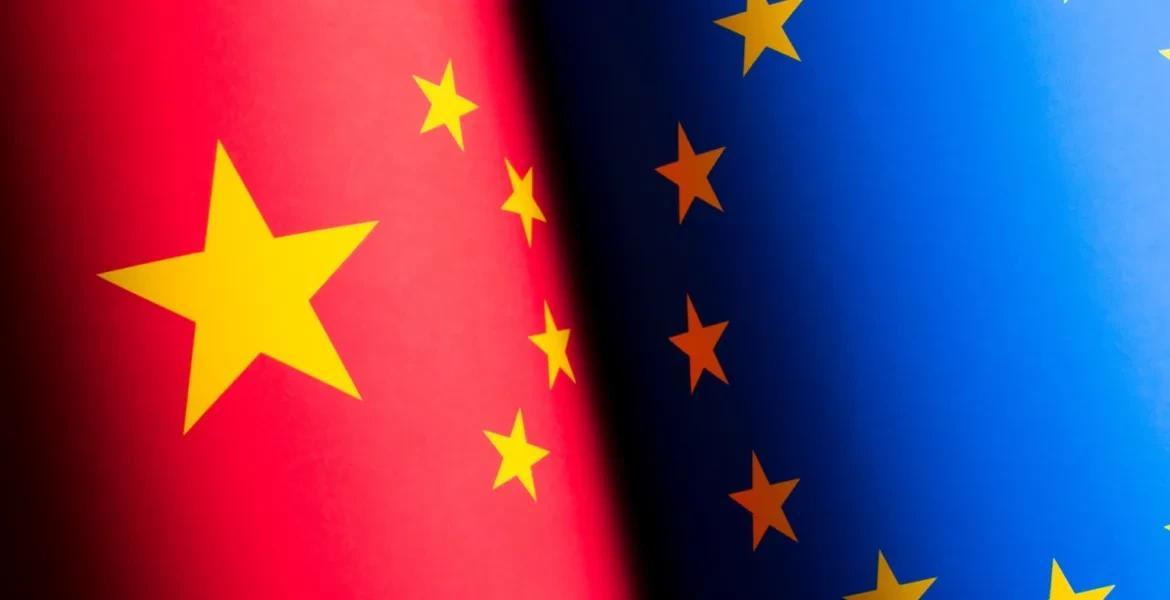Africa-Press – Zimbabwe. The recent Financial Times article, “EU and China stand-off over climate action before Xi and von der Leyen meet,” captures this friction, highlighting how the EU’s anti-subsidy probe into Chinese electric vehicles (EVs) has provoked a sharp rebuke from Beijing. But beneath the surface of trade disputes lies a deeper story, one that reveals the strategic ambitions of Xi Jinping and the Chinese Communist Party (CCP) to dominate the global green economy while resisting external scrutiny.
The EU’s investigation into Chinese EV subsidies is not merely a bureaucratic exercise; it is a direct challenge to China’s state-led industrial model. For years, Beijing has poured vast subsidies into its clean tech sector, enabling Chinese firms to flood global markets with low-cost solar panels, batteries, and EVs. While this has accelerated the global green transition, it has also raised alarms in Brussels and Washington about unfair competition and strategic dependency.
Xi Jinping’s government has responded with characteristic defiance. Framing the EU’s actions as protectionist and politically motivated, Beijing has warned of retaliatory measures, signalling that it views climate-linked trade disputes as part of a broader Western effort to contain China’s rise. This narrative fits neatly into the CCP’s domestic messaging, which portrays China as a victim of Western double standards while asserting its right to industrial self-determination.
Under Xi, China’s green industrial policy is not just about environmental stewardship; it is a pillar of national strategy. The CCP has identified clean technology as a domain where China can leapfrog traditional powers and assert global leadership. This ambition is backed by a sprawling network of state-owned enterprises, subsidies, and regulatory protections that have enabled Chinese firms to dominate key segments of the green supply chain.
Rare earths, solar panels, and EV batteries are not just commodities; they are instruments of geopolitical leverage. The EU’s dependence on Chinese inputs for its green transition places it in a precarious position. Brussels faces a dilemma: how to enforce fair competition without jeopardizing its own climate goals. Xi’s government is acutely aware of this dependency and has not hesitated to exploit it, using export controls and diplomatic pressure to remind Europe of the costs of confrontation.
While China has made impressive strides in renewable energy deployment, its climate governance remains tightly controlled by the CCP. Xi’s top-down approach to environmental policy, often described as “authoritarian environmentalism,” prioritizes state control over market mechanisms or civil society engagement. This model allows for rapid mobilization of resources but lacks transparency, accountability, and public participation.
Critics argue that this approach enables greenwashing and data manipulation, undermining global trust in China’s climate commitments. Moreover, the CCP’s suppression of environmental NGOs and independent researchers has stifled domestic scrutiny, making it difficult to assess the true environmental impact of China’s industrial policies. In this context, the EU’s push for fair competition and regulatory transparency is not just an economic issue; it is a challenge to the CCP’s governance model.
The EU’s decision to launch an anti-subsidy probe marks a turning point in its relationship with China. For years, Brussels pursued a policy of engagement, hoping that economic integration would encourage political convergence. That illusion has faded. The green tech standoff reflects a broader strategic awakening in Europe, where concerns about dependency, coercion, and systemic rivalry are reshaping policy.
Yet Europe’s position remains constrained by its reliance on Chinese supply chains. The EU’s climate ambitions are entangled with its economic vulnerabilities. This interdependence complicates efforts to decouple or diversify, especially in the short term. Xi Jinping understands this dynamic and is likely to use it as a bargaining chip in upcoming negotiations with European Commission President Ursula von der Leyen.
Xi’s leadership style is defined by calculated brinkmanship, pushing boundaries while avoiding outright rupture. In the climate domain, this means presenting China as an indispensable partner while resisting external pressure for reform. The CCP’s strategy is to shape global norms from within, leveraging its market size and technological prowess to dilute Western influence.
However, this approach carries risks. If China is perceived as weaponizing green trade or undermining fair competition, it could trigger a backlash that accelerates efforts to diversify supply chains and tighten trade rules. Already, the U.S. and EU are exploring new alliances and regulatory frameworks to counter China’s dominance. Xi’s challenge is to maintain China’s centrality in the green economy without provoking a coalition of resistance.
The upcoming meeting between Xi and von der Leyen will be more than a diplomatic formality; it will be a test of whether two interdependent yet adversarial powers can find common ground in the face of mounting tensions. For Xi Jinping and the CCP, the stakes are high. Their vision of green leadership is inseparable from their broader quest for global influence and domestic legitimacy.
But if that vision relies on coercion, opacity, and strategic dependency, it may ultimately undermine the very cooperation needed to address the climate crisis. The EU, for its part, must navigate a delicate balance—asserting its values and interests without derailing the green transition. In this high-stakes standoff, the path forward will require not just diplomacy, but a rethinking of how power, policy, and the planet intersect.
For More News And Analysis About Zimbabwe Follow Africa-Press






